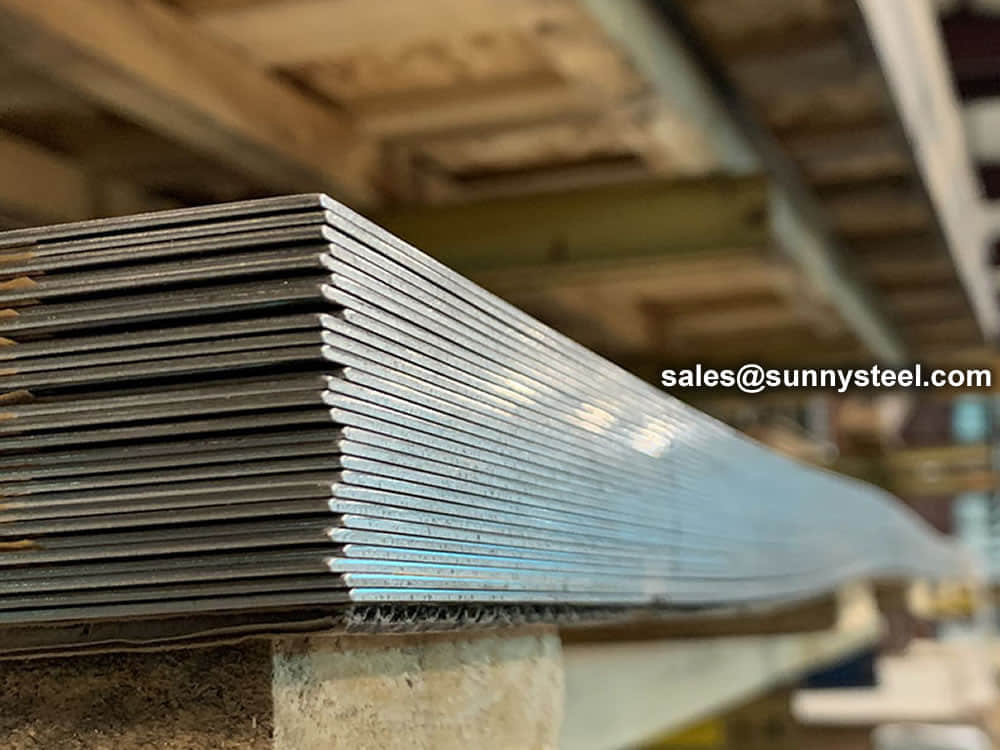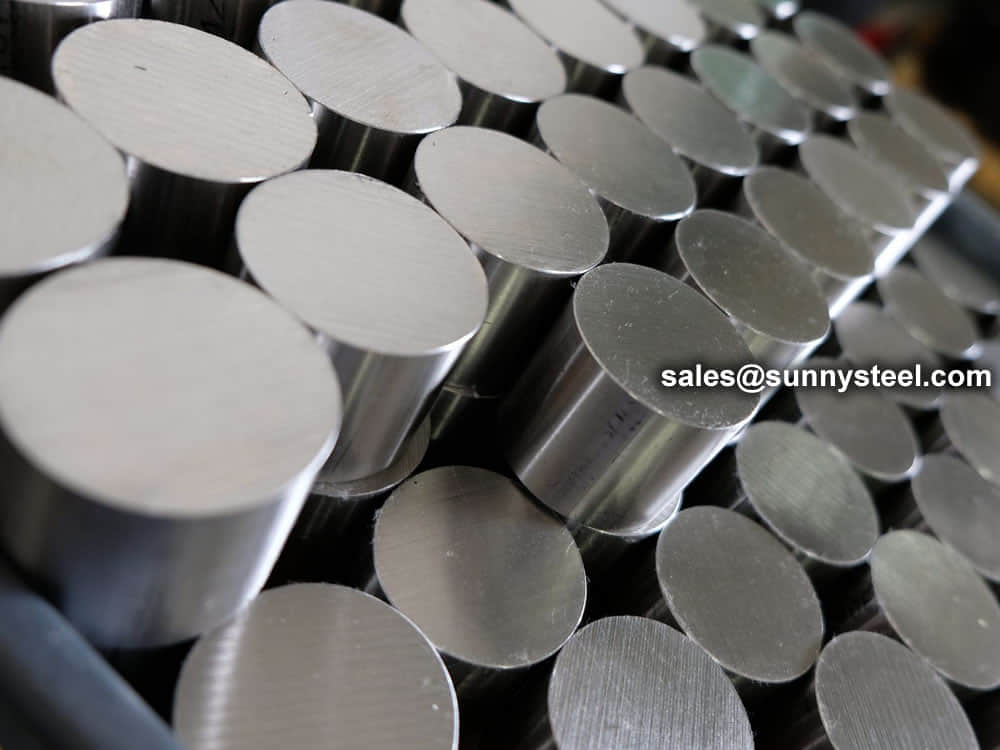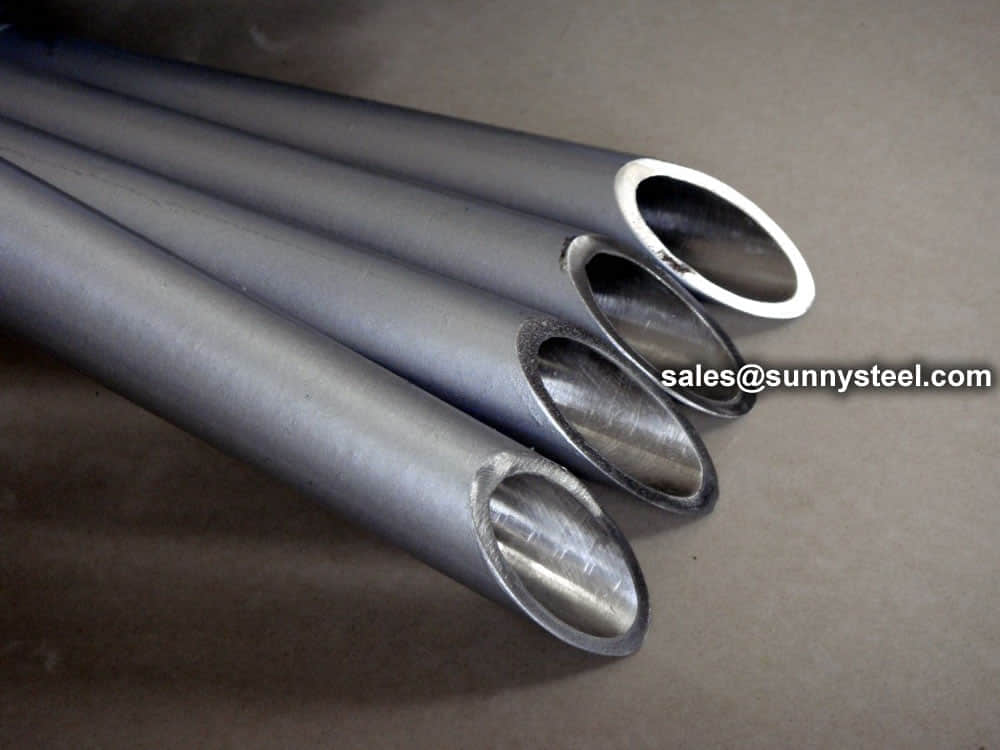Alloy C-276 is a solid solution strengthened nickel-molybdenum-chromium alloy with a small amount of tungsten.
Alloy C-276 is an improved wrought version of Alloy C and has the same excellent corrosion resistance as that material but has greatly improved fabricability. It can be hot worked and cold formed by conventional procedures. It can be joined by all of the common welding methods and resists the formation of grain boundary precipitates in the weld-affected zone, thus making it suitable for most chemical process applications in the aswelded condition. It resists pitting and stress-corrosion cracking and is resistant to oxidation at temperatures up to 1900°F.
Alloy C-276 exhibits excellent corrosion resistance in a variety of harsh environments and media. Like many other nickel alloys, it is ductile, easily formed and welded. This alloy is used in most industrial settings where aggressive chemical environments are present and other alloys have failed.
| Form | ASTM | ASME | VdTÜV |
|---|---|---|---|
| Bar | B574, B5641 | SB574, SB5641 | 400 |
| Plate & Sheet | B575 | SB575 | 400 |
| Welded Pipe | B619 | SB619 | – |
| Welded Tube | B626 | SB626 | – |
| Seamless Pipe & Tube | B622 | SB622 | – |
1On diameters above 3.5″, B564/SB564 is dual certified.
*EN10204-3.1 applies to all product forms.
Alloy C-276 is frequently used in many industries, including chemical and petrochemical processing, oil and gas, power generation, pharmaceutical, pulp and paper production and waste water treatment. End use applications include stack liners, ducts, dampers, scrubbers, stack gas reheaters, heat exchangers, reaction vessels, evaporators, transfer piping and many other highly corrosive applications.



Resistance to Corrosion
Alloy C-276 is one of the most universally corrosion resistant alloys available today. It is used in a variety of environments ranging from moderately oxidizing to strong reducing conditions. Alloy C-276 has exceptional resistance to sulfuric acid, hydrochloric acid, formic acid, acetic acid, chlorides, solvents, wet chloride gas, hypochlorite and chlorine solutions. Alloy C-276 has excellent resistance to phosphoric acid at all temperatures below boiling and concentrations lower than 65%. The limiting factor when dealing with strong oxidizing environments is the low chromium content, which means hot concentrated nitric acid environments are not desirable.
Alloy C-276 has superior resistance to pitting, stress corrosion cracking and oxidizing atmospheres. Alloy C-276 also exhibits resistance to corrosion by seawater in crevice conditions, which can induce aggressive attack in other commonly used materials.
| AVAILABILITY | SPECS | |
|---|---|---|
| SEAMLESS PIPE | 1/2" - 6" | 40S |
| WELDED PIPE | 1/2" - 12" | 10S, 40S |
| BUTT-WELD FITTINGS | 1/2" - 12" | 10S, 40S |
| FLANGES | 1/2" - 12" | 150#, 300# |
| VALVES | 1/2" - 8" | 150#, 300# |
| PRESSURE FITTINGS | 1/2" - 2" | 3000# |
| TUBING | 1/4", 3/8", 1/2" | 0.035, 0.049, 0.065 |
| FORGINGS | B564, B462 | |
| TENSILE REQUIREMENTS | |
|---|---|
| TENSILE STRENGTH | (KSI) 85 |
| YIELD STRENGTH | (KSI) 35 |
Alloy C-276 can be formed using various cold and hot working processes. Like other nickel alloys, alloy C-276 work hardens quickly, though it can be cold formed using aggressive methods like deep drawing, press forming and punching. Hot forming should be performed within a temperature range between 1600°F and 2250°F (870°C and 1230°C) with heavier sections being heated to a minimum temperature of 2000°F before forming. Annealing of the material after working is advised and should be performed at a temperature between 2050°F and 2150°F, followed by a rapid quench in a protective atmosphere or agitated reducing quench bath. To obtain a reducing quench bath, add 2% (by volume) of either ethyl or propyl alcohol to water.
| Element | Percentage |
|---|---|
| (Ni) Nickel | Remainder |
| (Mo) Molybdenum | 15.0 to 17.0 |
| (Cr) Chromium | 14.5 to 16.5 |
| (Fe) Iron | 4.0 to 7.0 |
| (W) Tungsten | 3.0 to 4.5 |
| (Co) Cobalt | 2.5 max |
| (Mn) Manganese | 1.0 max |
| (V) Vanadium | 0.35 max |
| (Si) Silicon | 0.08 max |
| (P) Phosphorus | 0.04 max |
| (S) Sulfur | 0.03 max |
| (C) Carbon | 0.010 max |

When you partner with Sunny Steel, you can stop worrying about meeting deadlines thanks to our responsive and timely service. You'll also say goodbye to unnecessary shopping around. Instead, you'll get white glove service from an expert who understands your needs and can get you the materials you need quickly.
